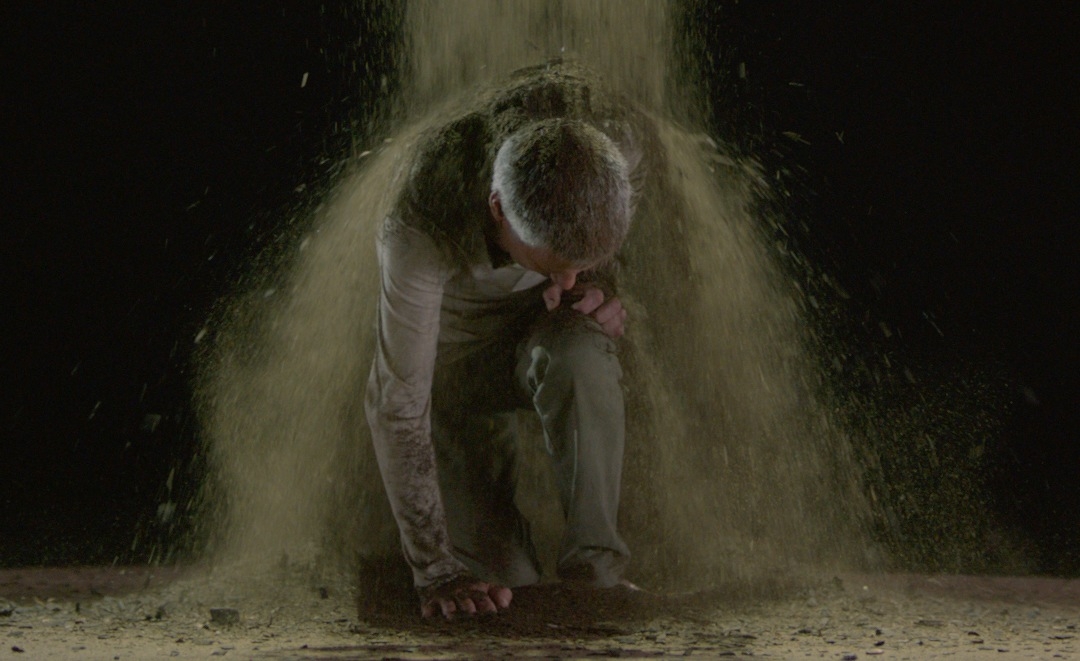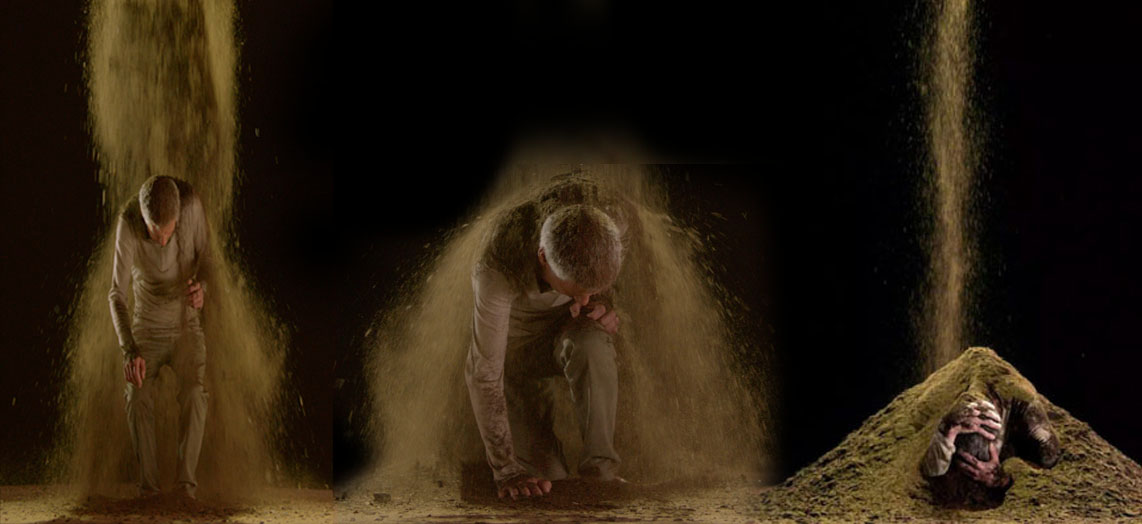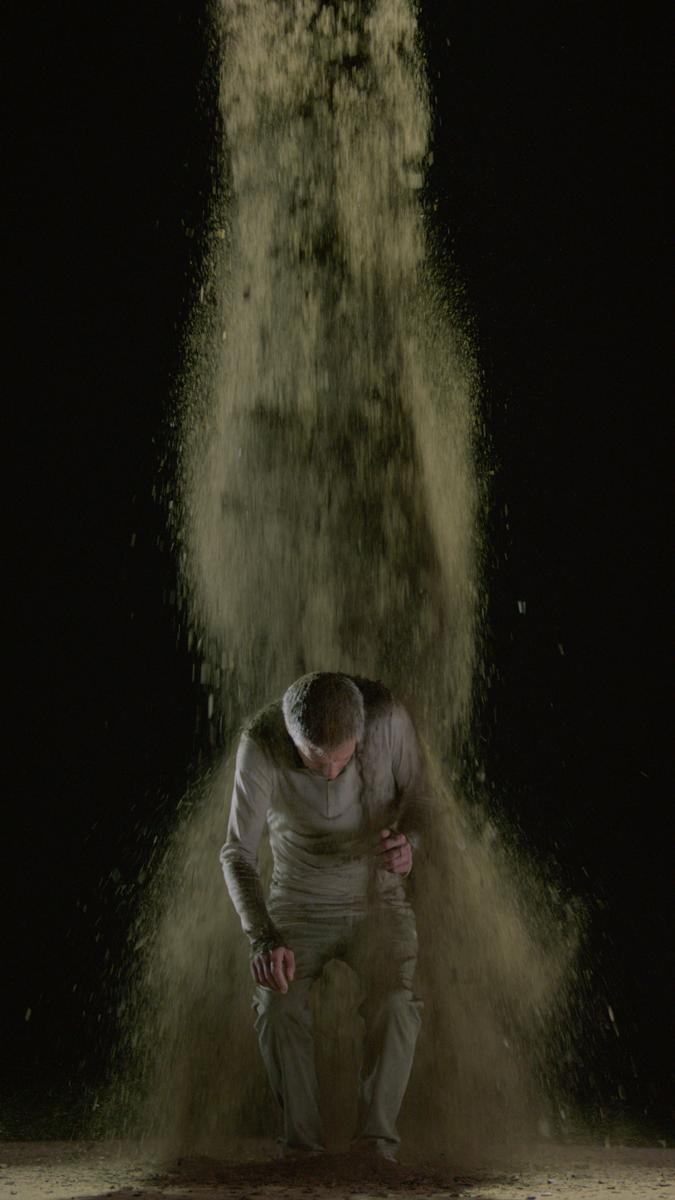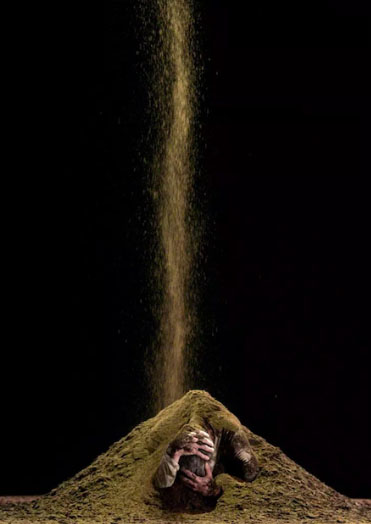December 5: Speak Out of the Dust
♫ Music:
Day 3 - Tuesday, December 05
Title: SPEAK OUT OF THE DUST
Scripture #1: Isaiah 29:4–6 (NKJV)
You shall be brought down, you shall speak out of the ground; your speech shall be low, out of the dust; your voice shall be like a medium’s, out of the ground; and your speech shall whisper out of the dust.“ Moreover the multitude of your foes shall be like fine dust, and the multitude of the terrible ones like chaff that passes away; yes, it shall be in an instant, suddenly. You will be punished by the Lord of hosts with thunder and earthquake and great noise, with storm and tempest and the flame of devouring fire.
Scripture #2: Isaiah 29:11–14 (NKJV)
The whole vision has become to you like the words of a book that is sealed, which men deliver to one who is literate, saying, “Read this, please.” And he says, “I cannot, for it is sealed.” Then the book is delivered to one who is illiterate, saying, “Read this, please.” And he says, “I am not literate.” Therefore the Lord said: “Inasmuch as these people draw near with their mouths and honor Me with their lips but have removed their hearts far from Me, and their fear toward Me is taught by the commandment of men, Therefore, behold, I will again do a marvelous work among this people, a marvelous work and a wonder; for the wisdom of their wise men shall perish, and the understanding of their prudent men shall be hidden.”
Scripture #3: Isaiah 29:18 (NKJV)
In that day the deaf shall hear the words of the book, and the eyes of the blind shall see out of obscurity and out of darkness. The humble also shall increase their joy in the Lord, and the poor among men shall rejoice in the Holy One of Israel.
Poetry & Poet:
from “The Rock”
by T.S. Eliot
The Eagle soars in the summit of Heaven,
The Hunter with his dogs pursues his circuit.
O perpetual revolution of configured stars,
O perpetual recurrence of determined seasons,
O world of spring and autumn, birth and dying!
The endless cycle of idea and action,
Endless invention, endless experiment,
Brings knowledge of motion, but not of stillness;
Knowledge of speech, but not of silence;
Knowledge of words, and ignorance of the Word.
All our knowledge brings us nearer to our ignorance,
All our ignorance brings us nearer to death,
But nearness to death no nearer to God .
Where is the Life we have lost in living?
Where is the wisdom we have lost in knowledge?
Where is the knowledge we have lost in information?
The cycles of Heaven in twenty centuries
Bring us farther from God and nearer to the Dust.
JOYFUL FALLING
I’m pretty sure a holiday greeting card made from Isaiah’s passage or T.S. Elliot’s poem would be a hard one to sell. Words such as––“from the dust,” “obscurity,” “darkness,” in combination with the words “perpetual” and “re-occurring'' don't make us think of glad tidings or great joy. But at the heart of the shepherd’s joyful proclamation in Bethlehem is the truth that is found in the dust of Isaiah.
Elliot’s poignant question, “where is the life we have lost in living?” clearly echoes Isaiah’s analysis of Israel who outwardly is saying and doing things that look good, but they are not honoring God with their passion, life, and intent. These writers are calling us to look beyond what is easily seen to instead recognize what is true.
As I write this, I do so from a place of my own personal humbling. It was launched when a tree branch above me came crashing through the foliage below before breaking on my head. Because of the fall, the inside of the branch was revealed––it had been eaten by termites and was clearly dead. This is the visual image of what Isaiah is saying about Israel. They look alive, but inside, they are rotten.
Much like Israel, the tree branch that crashed into me that day looked alive. The truth was a different story. It was no longer rooted to the life-giving substance the tree provided so, despite outward appearances, it was dead inside.
This is the heart of hope in the Advent message. Christ didn’t come to make us look alive, but rather to give us life. The promise is not merely in what can be seen, but instead in what is True.
As I type, a very dead, but alive looking tree branch has placed me in a season where my ability to do has been taken. A sudden cessation of activities and ministry due to injury has me quite literally flat on my back thinking about what it means not merely do the right things but become the right person. To not just know God, but to experience Him. To look beyond what I see into what is True and in awe gaze and wonder at who God is.
The joyful news in Isaiah and the solution to not losing life in living is to remember that who we are and what we see is not enough. This good news is that in Christ, we become the person in the image by Bill Viola. This person is literally overwhelmed by the dust. He appears buried and overcome. His posture is broken. But, according to the artist, he is not defeated. He has borne pain, hardship, and outward defeat but his conviction, values, and rootedness remain.
Isaiah concludes with the phrase, “the humble shall increase their joy.” (v19). This increased joy is found when our appearances and strivings are stripped away. Isaiah’s Christmas card proclaims great joy in humble brokenness. It is found in acknowledging pain, recognizing our failures, weaknesses, and limits. In this season for me, a cessation of doing brought on by a tree branch, is an invitation to gaze upon who God is and joyfully realize what we are not.
Prayer:
God root us in the truth of who you are, and we are not. Let us not merely have the appearance of life but find true life in you. Thank you for the joy you provide in humility.
Amen
Amie Cross, M.Div.
Alumna of Torrey Honors College
Biola University
Chaplain and Missionary
For more information about the artwork, music, and poetry selected for this day, we have provided resources under the “About” tab located next to the “Devotional” tab.
About the Artwork:
Martyrs (Earth) (several views)
Bill Viola
2014
Stills from a video installation
St. Paul’s Cathedral
London, England
Martyrs (Earth, Air, Fire, Water) consists of four plasma screens, each showing a single figure who is progressively overwhelmed by the onslaught of a natural force. These still video images are from the Martyrs (Earth) sequence. The experiences of the four individuals are orchestrated together to form a coherent whole. The overriding theme is martyrdom for deep-seated beliefs, with the physical suffering of the body made dramatically evident through four cardinal elements. Reflecting that the Greek word for martyr originally meant “witness,” Viola has explained that the martyrs “exemplify the human capacity to bear pain, hardship and even death in order to remain faithful to their values, beliefs and principles.” Like much of Viola’s work, Martyrs offers a contemporary contemplation on life, death, and afterlife.
https://www.itsliquid.com/bill-viola-martyrs.html
About the Artist:
Bill Viola (b. 1951) is a contemporary video artist whose artistic expression derives from the image technology found in new media. He has been instrumental in the establishment of video as a vital form of contemporary art and, in doing so, has helped to greatly expand its scope in terms of technology, content, and historical reach. For forty years he has created videotapes, architectural video installations, sound environments, electronic music performances, flat panel video pieces, and works for television broadcast. His work focuses on the ideas behind fundamental central themes of human consciousness and experience—birth, death, love, emotion, and spirituality. Throughout his career he has drawn meaning and inspiration from his deep interest in the mystical traditions of Zen Buddhism, Christian mysticism, and Islamic Sufism, evident in the transcendental quality of his work. The subject matter and manner of Western medieval and Renaissance devotional art have equally informed his aesthetic. Viola's work often exhibits a painterly quality while his use of ultra-slow-motion video encourages the viewer to contemplate the imagery and connect deeply to the inherent themes and meanings. An ongoing theme that Viola explores is dualism, the idea that comprehension of a subject is impossible unless its opposite is known.
http://www.billviola.com/
https://en.wikipedia.org/wiki/Bill_Viola
About the Music:
“Speak from the Dust—Isaiah 29” from the album Isaiah Oratorio
The text is from the King James Version of the book of Isaiah. It is the fourth movement in the oratorio Isaiah. The piece premiered at the University of North Carolina on November 21, 2014, in the Hill Hall Auditorium, and was subsequently recorded on November 23, 2014.
Special note on the music - (About half way through music there is a very quiet section.)
Lyrics:
The Hypocrisy & Resulting Humbling of Israel
And thou shalt be brought down,
And shalt speak;
Out of the ground,
And thy speech shall be low,
Out of the dust,
And thy voice shall be as one familiar spirit,
Out of the ground,
And thy speech shall whisper,
Out of the dust.
And the vision is become as the words of a book,
And delivered to him that is not learned,
Saying, read this, I pray thee:
And he saith, I’m not learned.
Therefore, I will proceed to do a marvelous
Work among this people,
Marvelous work and wonder:
For the wisdom of their wise men shall perish,
And the understanding of their
prudent men shall be hid.
And in that day shall the deaf
Hear the words of the book,
And the eyes of the blind shall see,
Out of obscurity,
And out of darkness,
And out of darkness.
And the meek shall increase
Their joy in the Lord
And the poor among men,
Shall rejoice in the Holy One,
The Holy One of Israel.
To thee that erred,
Be rich and come to understanding.
They that dwelleth; the noble
And wise men shall perish,
And the understanding of their prudent men shall be.
They that erred and they that murmured,
None can shatter darkness;
They that erred and they that murmured,
Shall come to understanding;
And they shall be freed of the blindness.
This shall be the work of the poor.
Thy speech shall be as a familiar spirit,
And thou shalt be brought down.
Familiar, familiar spirit.
About the Composer:
Described as a “bright star on the jazz horizon,” Stephen Anderson is a critically acclaimed composer and pianist whose music has been published on nineteen compact discs. Dr. Anderson is professor of composition and jazz studies at the University of North Carolina at Chapel Hill and serves as director of jazz studies and director of the UNC Summer Jazz Workshop. He earned a D.M.A. degree (2005) and a M.M degree (2000) from the University of North Texas and a B.Mus. degree from Brigham Young University (1997). Anderson’s work with the Dominican Jazz Project and Marimjazzia Latin jazz ensembles have led him to perform at multiple festivals in the Caribbean, as well as in Central and South America since 2014. Associated with the 2022 Jazzomania Jazz Festival IV, and as founder and director of the Dominican Jazz Project, Anderson was formally recognized and distinguished by the minister of culture, Senora Milagros German, of the government of the Dominican Republic, for “his research and contributions to the national musical heritage.” In 2011, Anderson began work on his first choral composition, Isaiah, for chorus, string orchestra, and piano. Anderson writes, “I began to realize the significance of what the piece could become. Handel’s oratorio, the Messiah, drew heavily from the book of Isaiah. Isaiah was important to both Jews and Christians across the world due, in part, due to the numerous Messianic prophecies contained throughout Isaiah’s writings.” The fifty-minute piece premiered at the University of North Carolina on November 21, 2013, at Hill Hall Auditorium.
https://music.unc.edu/people/musicfaculty/stephenanderson
About the Performers:
University of North Carolina Choir and Orchestra with soloists Kassy Edwards, Sarah Wolber, and Kaswanna Kanyinda
The UNC Chamber Singers, under the direction of Susan Klebanow, is an ensemble of twenty-five voices. Its repertoire encompasses vocal chamber music of different styles, with emphasis on Renaissance, Baroque, and twentieth-century/twenty-first-century music.
Susan Klebanow is the director of choral activities at the University of North Carolina at Chapel Hill, where she conducts the Carolina Choir and UNC Chamber Singers and teaches courses in conducting. Her B.A. is from Brandeis University and M.M. in Choral Conducting from the New England Conservatory of Music. Klebanow has led choral festivals, workshops, and clinics throughout the United States, Mexico, Italy, and Hong Kong. She has guest conducted many choral and instrumental ensembles, including the North Carolina Symphony, the Emmanuel Church of Boston Bach Cantata Series, Mallarme Chamber Players, Boston University’s Opera Theatre, and the University of Veracruz Baroque Festival Chorus in Mexico. A performing pianist, harpsichordist, and accomplished soprano, she has concertized extensively with contemporary music and early-music groups based in Boston, North Carolina, and Mexico City.
https://music.unc.edu/people/musicfaculty/susan-klebanow/
The UNC Symphony Orchestra is a ninety-member ensemble that performs two major concerts each semester. Enrollment is open by audition to the entire UNC community—music majors, minors, non-majors, graduate students in all fields, and recent graduates. Led by its music director and conductor, Tonu Kalam, the orchestra often presents faculty and student musicians as concerto soloists and has regularly collaborated with the UNC Opera and choral ensembles.
https://music.unc.edu/undergraduate/ensembles/uncso/
Tonu Kalam has served on the UNC-Chapel Hill faculty as music director and conductor of the UNC Symphony Orchestra since 1988. Under his leadership, the UNCSO was named as the 2012 first-place winner of the American Prize in Orchestral Performance—College/University Division. He was educated at Harvard University (A.B. 1969), the University of California at Berkeley (M.A. 1971), and the Curtis Institute of Music. For twenty-five years Kalam also served as music director and conductor of the Longview Symphony Orchestra in Texas and he has guest conducted orchestras and opera companies throughout the United States and Europe.
https://music.unc.edu/people/musicfaculty/tonu-kalam/
About the Poetry and Poet:
T. S. Eliot (1888–1965), one of the twentieth century's major poets, was also an essayist, publisher, playwright, and literary critic. Born in Missouri to a prominent family, he moved to England in 1914 where he settled, worked, and became a British subject. It was poet Ezra Pound, in his role as a friend and editor, who helped establish Eliot as a preeminent figure in the modernist poetic movement, particularly through his editorial assistance of The Waste Land (1922). With its collage of voices, its violent disjunctions in tone and wealth of cultural allusion, Eliot’s The Waste Land resonated as a depiction of the ruins of post-war European civilization. The 1920s also saw Eliot become increasingly conservative in his outlook, particularly following his conversion to the Anglican Church. His religious conversion would have a far-reaching impact on the rest of his career, culminating in the Christian meditations found in Four Quartets (1943), which garnered him the 1948 Nobel Prize for Literature. He was also known for his seven plays, particularly Murder in the Cathedral (1935) and The Cocktail Party (1949).
https://en.wikipedia.org/wiki/T._S._Eliot
https://www.poetryfoundation.org/poets/t-s-eliot
About the Devotion Author:
Amie Cross, M.Div.
Alumna of Torrey Honors College
Biola University
Chaplain and Missionary
Amie Cross completed her undergraduate studies at Biola as a part of the Torrey Honors Society cohort. She received her M.Div. in community chaplaincy from Liberty University and loves holding stories for others and is amazed at the many ways God shows up in brokenness. She has lived in East Africa for eleven years where she lives and serves with her husband and five children. She currently serves as the elementary school chaplain for an international school. Watching God bring comfort and helping carry the burdens of others while awaiting His redemption brings her joy.



